SUMMARY
This is AI generated summarization, which may have errors. For context, always refer to the full article.
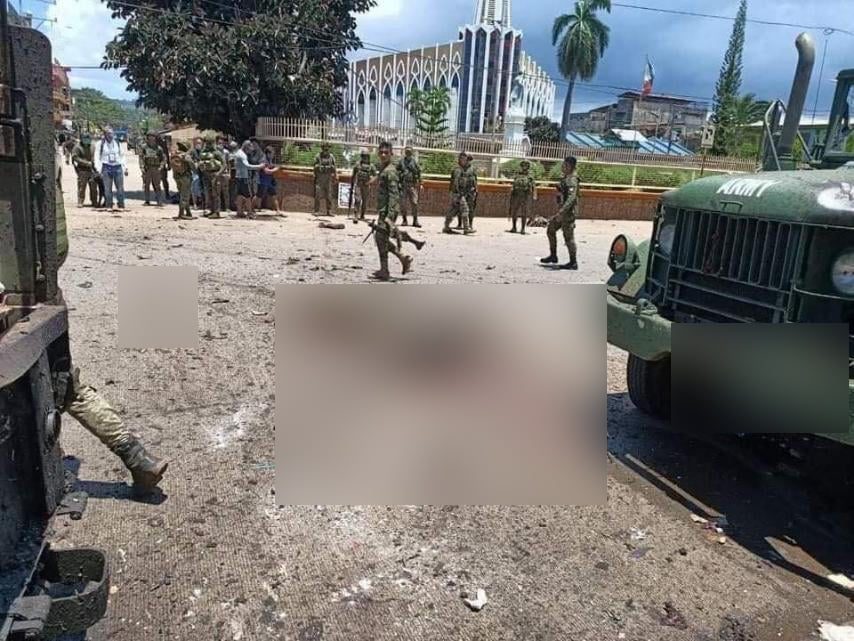
Senator Risa Hontiveros on Wednesday, August 26, called for a full investigation of the deadly twin bombings in Jolo, Sulu, earlier this week, and its possible connection to the killing of 4 intelligence soldiers by police in late June.
The opposition senator said a comprehensive probe “with no cover-ups” is necessary to get to “the full truth, no matter how ugly or inconvenient” about what led to the suicide attacks that killed at least 14 people and wounded at least 75 others on Monday, August 24.
She also urged the Philippine National Police (PNP) to relieve the entire police force in Jolo, as reports from the military raise the possibility that cops killed the 4 intelligence soldiers on June 29 to sabotage their mission to capture the two would-be suicide bombers.
“Deretsahang tanong (Direct question): Did terrorist elements somehow influence, directly or indirectly, the killing of these soldiers?” Hontiveros said in a privilege speech before the Senate plenary.
The investigation, the senator said, should answer 3 questions:
- What motivated the killing of the soldiers on June 29?
- Why was evidence from the crime scene haphazardly handled, and could this have led to military intelligence reaching the enemy?
- Should accountability for all these go higher than the Jolo local police?
Targets got away
Earlier on Wednesday, Philippine Army chief Lieutenant General Cirilito Sobejana said the two female suicide bombers in the Jolo blasts were the surveillance targets of the intelligence mission of Army soldiers Marvin Indammog, Irwin Managuelod, Jaime Velasco, and Abdal Asula – all slain.
Hontiveros said she received information that the 4 soldiers were already “closing in” on both targets during their signals intelligence (SIGINT) operation on June 29, when they were waylaid by 9 policemen and later on shot dead in broad daylight in downtown Jolo.
At the time, the Army said the loss of the soldiers was a setback in counterterrorism in Sulu, and that the women planning a suicide bomb attack got away because of it.
The bombers knew they were being trailed
Hontiveros disputed the PNP’s claim that the cops were after Asula, whom they alleged was involved in illegal drugs. If so, why was there no record of an anti-drug operation in Jolo at the time, and no coordination between the police and the local unit of the Philippine Drug Enforcement Agency?
Meanwhile, the Armed Forces of the Philippines (AFP) Joint Task Force Sulu had informed the local and provincial police about the 4 soldiers’ counterterrorism operation, and even sought their help in hunting down the targets.
During his confirmation hearing at the Senate on Monday, Sulu task force chief Lieutenant General Corleto Vinluan Jr, now military commander in Western Mindanao, said it was possible the cops who killed the soldiers were somehow linked to the Abu Sayyaf terrorist group. Sulu is a small province, and it is common to have terrorists and lawmen belonging to the same clan.
The suicide bombers, alias Nanah and alias Inda Nay, were working for the Abu Sayyaf, which has links to the Islamic State (ISIS) terror network, the military said. Nanah was the widow of Filipino suicide bomber Norman Lasuca, and Inda Nay, the widow of Abu Sayyaf fighter Abu Talha.
“What lends this theory support is information I have received that on June 29, the soldiers found out that the bombers knew that they were being trailed by the AFP,” Hontiveros said.
‘Last seen’
Messaging apps on Indammog’s mobile phone registered “last seen” time stamps past the hour when he was killed – leading Hontiveros to ask why the phone was not immediately handed over to the military.
“Kung ang tanong lang pagkatapos ng June 29 ay ‘ano ang tinatago ng kapulisan at bakit parang may cover-up,’ ngayon, pagkatapos ng pagbomba sa Jolo, ang tanong na ay ‘mayroon bang military intelligence na napunta na sa kamay ng kalaban?’” Hontiveros said.
(If the question after June 29 was only, “what are the police hiding and why does there seem to be a cover up,” now, after the bombing of Jolo, the question is “is there military intelligence that has ended up in the hands of the enemy?”)
The senator also questioned the PNP’s refusal to preventively suspend the 9 cops involved in the killing of the soldiers. PNP chief General Archie Gamboa said it is beyond his authority, and a suspension could only be meted out when guilt is proven.
Hontiveros is concerned that the 9 suspects may still have access to police intelligence unless they are suspended. “In light of the statements of Lieutenant General Vinluan, I am deeply concerned over the risks to our national security,” she said.
Seeking “more decisiveness” from the PNP’s leaders, the senator urged them to relieve the entire Jolo police force, in order to “eliminate doubts about terrorist infiltration, reassure Filipinos, and give the investigation a free hand.” – Rappler.com
Add a comment
How does this make you feel?
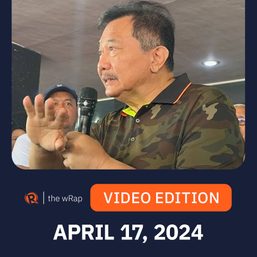
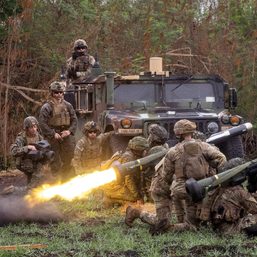
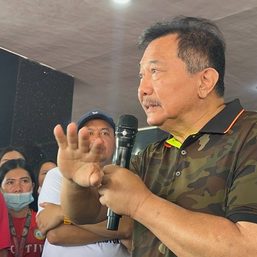
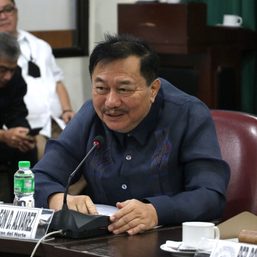
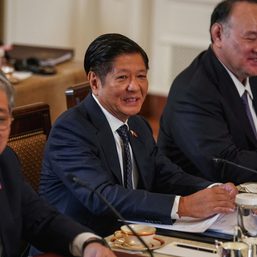

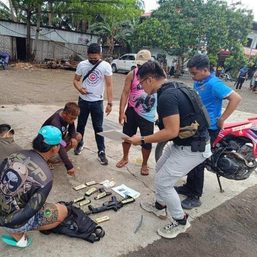

![[Rappler Investigates] The guns of Apollo Quiboloy](https://www.rappler.com/tachyon/2024/04/quibs-guns-carousel.jpg?resize=257%2C257&crop=412px%2C0px%2C1280px%2C1280px)

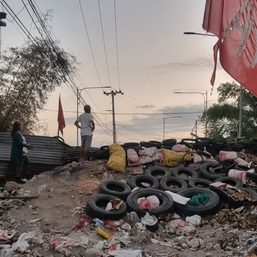
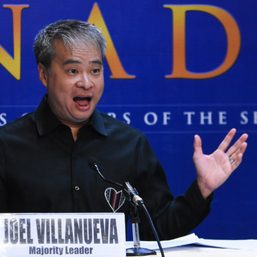
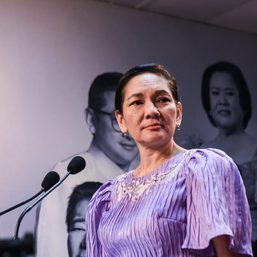
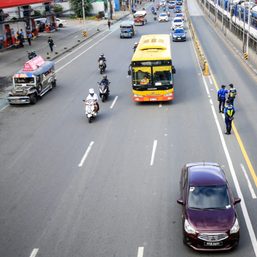
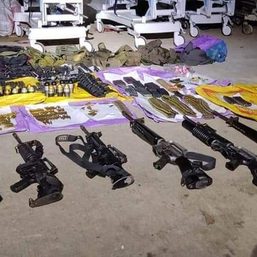
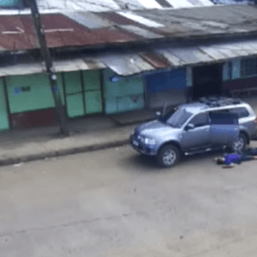
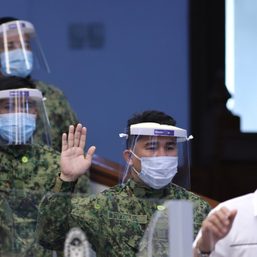
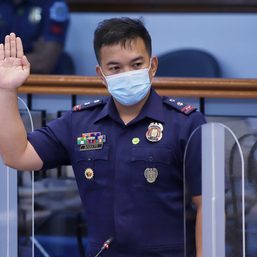
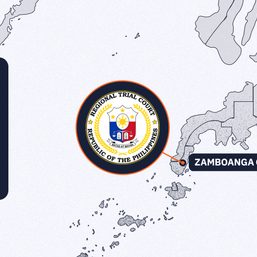
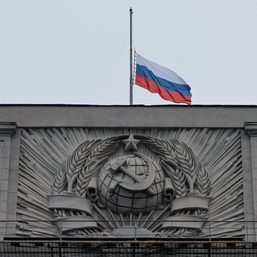
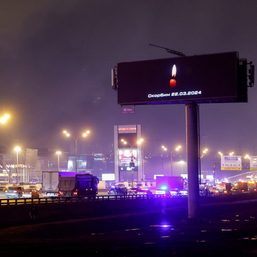
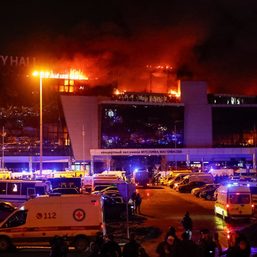
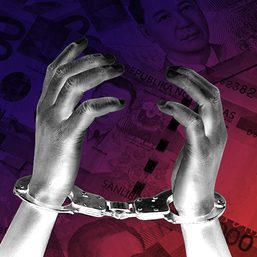
There are no comments yet. Add your comment to start the conversation.